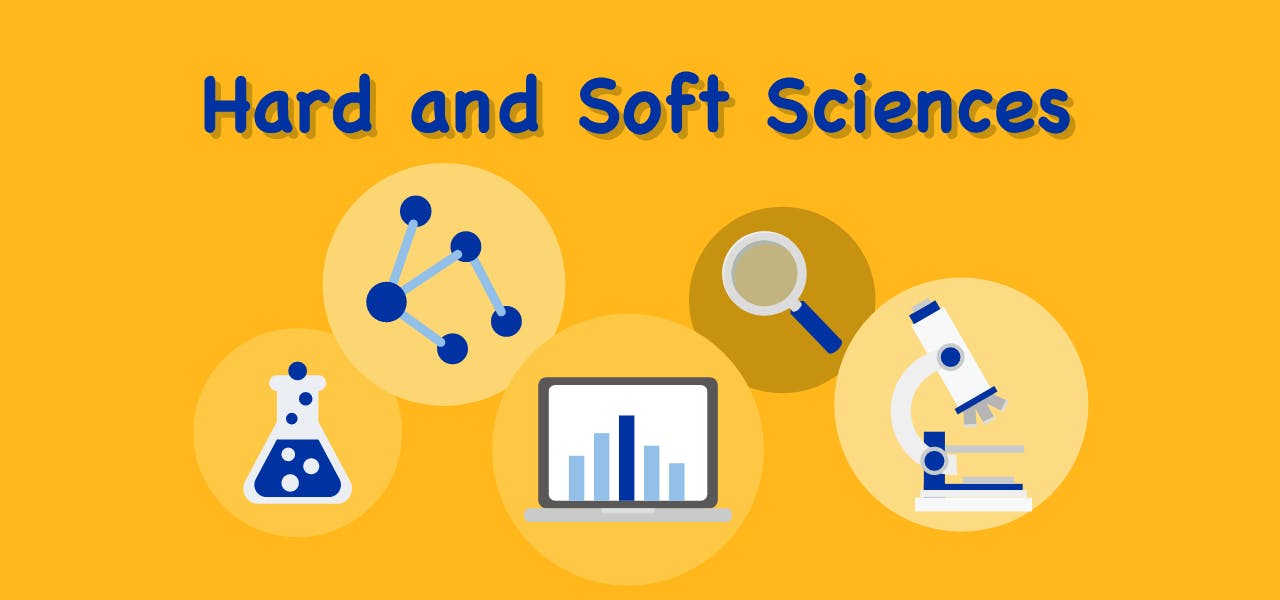The term ‘science’ is a vague word for a huge category of information. It is vaguely defined as the pursuit of knowledge and how the world works by tracing the evidence back to its source. Science is categorized as both hard and soft, with important distinctions between each scope of study.
By designating certain fields to be ‘hard’ or ‘soft,’ a label is immediately put on them to raise or diminish the importance of a subject, but each section of study has its own relevance and significance that work together to fit in the big picture of how the world works. Every aspect of science is designated by its reliance on objectivity, evidence, and experiments to showcase its validity. While the difference between hard and soft science is clear, it’s not as easy to place one over the other as more important.
A Breakdown of Scientific Categories
Science is broken down into two categories: hard and soft. The terms aren’t meant to generalize the difficulty of the categories. They actually refer to the way the scientific method is implemented to determine the outcome of the research. To understand what these terms mean, you must know the definition and the subjects they encompass.
Hard science is the term used to define natural and physical sciences that study the universe through theories, hypotheses and experiments. The subjects that are included in this category are physics, math, chemistry, biology, anatomy, and astronomy, to name a few.
Soft science, on the other hand, encompasses a specialized field or discipline that focuses on the study and interpretation of human behavior. Because it’s more difficult to establish measurable criteria when working on the analysis of how the mind works, these are less rigidly required to follow the scientific method, making them “soft” subjects. This category includes fields of study like sociology, psychology, political science, and anthropology.
Analyzing the Differences in the Two Avenues
The fact that all of these subjects are classified under the heading of science means that they are all objective, relevant, and important in understanding how the world works in some way. But because labeling them “hard” and “soft” has brought about many misinterpretations of how they are perceived, these categories are used less often today. Hard is considered to be more difficult and therefore more credible, and soft lends a connotation of easier and less important. On the contrary, it’s often more difficult to create and run an experiment based on human behavior and thoughts than it is on a chemistry or math question.
The difference begins when it comes to the testing of the hypothesis. Can the question that is being studied be stated, tested, and accepted or rejected by following the scientific method clearly? Or is there a need for flexibility, quantitative evidence, and researcher judgment?
Because of the misunderstanding between the two terms, many people consider soft sciences to be based more on ideology and opinion rather than scientific principles. But as long as the research experiment is based on a hypothesis that can be tested through controlled variables and well designed scientific methods of analysis, it is just as valid as a hard science experiment.
A major difference between the two categories is that hard science hypotheses can be questioned and analyzed using positive and negative control groups without dealing with the ambiguity of human behavior. Soft sciences require the use of human beings that fit the control groups and are willing to be tested, honest, and meet the biological requirements. Soft sciences must adhere to all the ethical and legal policies in place when dealing with human test subjects. Hard sciences, unless they are using animal test subjects, don’t have this level of ethical caution.
Both categories have their own obstacles that must be overcome for the research to have an impact on the world around us, and all scientific fields have benefits to the dissemination of knowledge.
